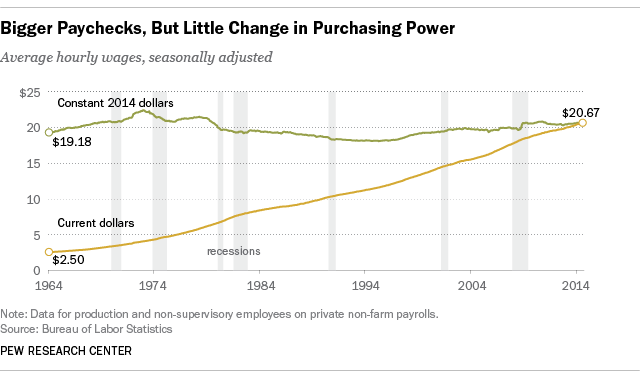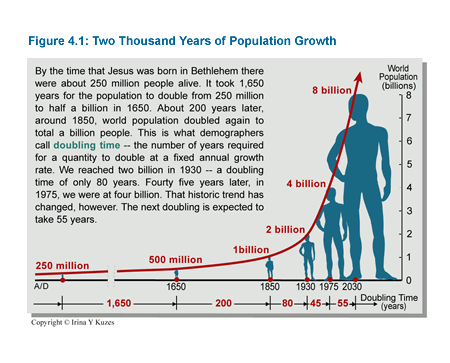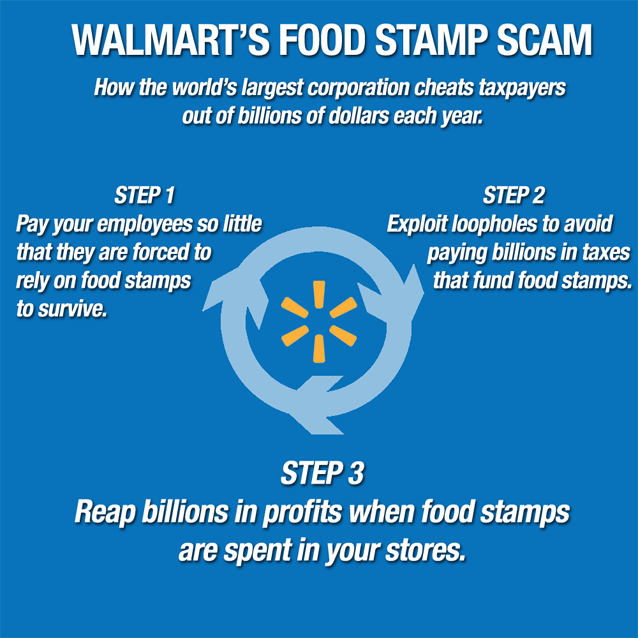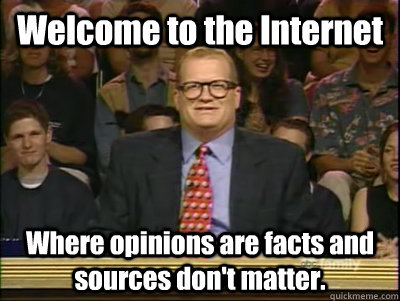The American Poor

Do you believe that poor people in America are poor because of the negative lifestyle & life choices they make? Do you further contend that there is a culture of poverty in America in which the American poor believe in immediate gratification w/o any thought of the future which they deem to be unimportant? Do you believe that the poor in America have myriad opportunities to better themselves but elect to blame society instead of taking & being responsible for themselves?YES I do, you hit the nail on the head with using economics as the cause or effect of child rearing , of social behavior , of thug mentality , of rioting in the streets. Maybe - too many of our youth focus more on a phony image of wealth and class and too little on the real substance of intellect and maturity .
No ,not maybe -definitely !+1,000,000,000,000,000,000,000,000,000,000,000,000,000!!!!!
It's true that people make themselves poor for the reasons you listed. However there are other reasons. They may have never learned what it takes to be wealthy, either because they were born poor, or because their middle class parents dumped their responsibility on servants and never taught them, or the situation may have changed right when they go out on their own and the old rules no longer apply. Some people are not savvy enough to avoid being ripped off by others. And some may come upon a long barrage of hard luck - like losing their jobs and their health at the same time.
Since this could happen to anyone, it is important to not be judgmental.There but by the grace of God go we.
It is becoming more and more difficult to get ahead in this country. We are, for the most part, slaves of the system. I agree with you we shouldn't judge.
The grotesque moral atrocity of blaming the poor for being poor, thinking the poor are bad and irresponsible people who have made stupid, disgusting choices.
It appears that there is a stereotype that exist that the poor are shiftless parasites, but in reality, over 80 percent of the are either children, disabled, students, or involuntarily unemployed. These people are poor because they generally can't work.
The Great Recession should have put the victim-blaming theory of poverty to rest. In the space of only a few months, millions of people entered the ranks of the officially poor—not only laid-off blue-collar workers, but also downsized tech workers, managers, lawyers, and other once-comfortable professionals. No one could accuse these “nouveau poor” Americans of having made bad choices or bad lifestyle decisions. They were educated, hardworking, and ambitious, and now they were also poor—applying for food stamps, showing up in shelters, lining up for entry-level jobs in retail. This would have been the moment for the pundits to finally admit the truth: Poverty is not a character failing or a lack of motivation. Poverty is a shortage of money. - ↑ Time to Wake Up: Stop Blaming Poverty on the Poor


Something we see eye to eye on. Fancy that.
Sorry, but your middle meme, the one with costs, is nothing but lie. College costs may have gone up by a factor of 10 (along with everything else) in the past 40 years, but so has wages. To say that wages have increased only 10% is outright lie.
And the only thing that makes the third one even somewhat true is that the definition of "poverty" keep increasing. What was "rich" when I was a child is not "poverty".I think you forgot about the purchasing power of the dollar, if you factor in inflation, minimum wage is lower than decades ago even tho' the number is higher.
But if you factor in inflation then education has not risen by a factor of 10, food has fallen and so has housing (for similar homes). Either do it for all or do it for none - the tactic of spinning raw data by treating it differently according to what is desired is obnoxious.
You are absolutely right about the food. Same with technology. Perhaps is the floating fiat dollar - I'm not an economics theorist. But neither are you. So here ya go: Wage Stagnation in Nine Charts @ http://www.epi.org/publication/charting … tagnation/
Don't argue with me with stuff you don't like to hear, give me evidence that I'm wrong and you are correct in your assumptions. I'm the one giving all the links here. I don't see you doing that.
Those indexes do not take inflation into account.
What gains have been made, have gone to the upper income brackets.
employer-provided health insurance — may be constraining employers’ ability or willingness to raise wages. Other factors that have been suggested include continued labor-market slack; lagging educational attainment relative to other countries; and a broad decline in better-paying jobs and consequent shift toward job growth in low-wage industries.Uhh...yes, the graphs most certainly ARE taking inflation into account. That's what they are all about - comparing old dollars to current, inflated, ones.
The thing is, though, that I didn't say there was no inflation. I said that if you are going to take inflation into account (which was done in the earnings section, except for the CEO's) then it ALSO has to be taken into account in the expenditures section, where it most certainly was not. Apples and oranges then, in an attempt to "prove" something that isn't true.
Fact of the matter is that the buying power of an hours work is greater now than it was in 1978. Many things have gone down, a very few have risen (mostly labor intensive, such as education) and a great many have increased in cost because they are more than they were. Cars are an example - few cars in 1978 had half the options that most do today. Homes have nearly doubled in size, and have more "options". And that happened while real wages rose slightly (as shown in your graph) - the end result is that the "poor" have more now than middle class did 50 years ago.Fact of the matter is that the buying power of an hours work is greater now than it was in 1978.
Back up your BS. Stating it is a fact does not make it a fact. Your statement is an opinion, not a fact.https://www.bls.gov/data/inflation_calculator.htm
Ok, wilderness, I am confused when you say that the buying power of an hours work is greater today than in 1978, how do you figure?
Yes, there have been technological innovations found on cars today that were not there in 1978. But the same could be said of a Model T compared to a Chrysler K Car. I don't think that technological advances in vehicles over a substantial period of time really explain the difference. I believe inflation is what it is, comprised of increase in the cost of labor and materials being a more palatable explanation.
Just play with the BLS calculator for a while, as BLS is as official as it gets. Try 1978 in comparison to today and see what you find?
http://www.davemanuel.com/median-household-income.php
But your point is considered, the minimum wage was $2.65/hour in 1978, it is $7.25 today, the BLS says that $1000 in 1978 is the equivalent of almost $3,500, today. But doing the math, it can see that ground had been lost, if the ratio of 3500/1000 is applied, that 3.5. Multiply by 2.65 and you have 9.27. So based on this some buying power been lost.
Yet, the medium family income was 13,000, it is 53,000today, but the above data indicated that the 13K then is equal to about 50 K today, so maybe so much ground had not been lost?I think you answered your own question: the average wage of $13,000 in 1978 translates to $45,500 today, but instead of that figure the average wage today is $53,000 (you need to re-do your math: 13,000*3.5=45,500, not 50,000). An increase of almost 16% over the equivalent figure from 1978. Add in the increases in value, whether a car, a home or a TV and it's even larger than that.
It is quite unreasonable to use minimum wage figures - while minimum was common in 1978 (in the early 70's I earned minimum wage programming at the college, at a gas station, a tire store and on a farm), it is very uncommon today. Even fast food in all but the smallest of towns does considerably better and newly opening fast food joints in my area (pop. 90,000) are advertising at $10+ for beginning wages.
Car improvements: I'm not speaking about technological improvements giving better fuel mileage, longer life or similar things. Rather, things like power steering, electric windows, heated seats and steering wheels, mirror defrosters, leather seats, and AC in even the cheapest cars. Things that were available in 1978, but seldom used because they ran the cost up (and still do). I recently bought a new refrigerator; the double doors, pull out drawer, door on the door and bottom freezer with drawer could all have been done in 1978 but weren't because of cost. It's these kind of "improvements" - not improvements at all but simply additional luxury options - that I refer to. And of course the size of homes being built is nearly double what it was then, without doubling the cost.Here's another indication of just why it isn't reasonable to think that we make no more than we used to.
Driving home yesterday down the main street between two close-set cities, I was struck by the proliferation of places to eat and drink. It seemed that every 3rd or 4th store was a restaurant, coffee shop or other form of business selling ready to eat food, and that went on for several miles. And don't get me started on a (successful!) business selling a cup of coffee that costs an hours wage!
I grew up in a town of 10,000 and it had (I think) 5 places to eat. One for every 2,000 people. Now I see one for every 500 people, or even less, and someone is supporting those businesses! Businesses providing entertainment have flourished, too - movie theaters, skating rinks, arcade joints, etc. and the same thing applies - someone is paying for that and it isn't limited to the "rich".
"Toys" for the middle class - boats, ATV's, RV's, etc. abound where they used to be rare.
We seem to have considerable more "leisure" money than we used to.Not sure if I understand, you grew up in rural area of 10K people and now you live in twin cities? I don't see how that is comparable.
As far as your point about growing up in a rural area, even if you lived in the same town all your life - I'm assuming that the town grew in population? What is the population now compared to when you were a kid?
I tried to look up my home town population growth history but the census just has information about the latest census and that's it.
But worldwide I found this info: Between 1900 and 2000 an increase from 1.5 to 6.1 billion in just 100 years.
Unless you are living in North Dakota - every state has had population growth and it is not just from people moving here from somewhere else.
No, the small town of La Grande Or. is not very comparable to Boise, Id (or the suburb of Meridian, where I live). But then I didn't compare the towns, just the number of eateries per person over a 50 year time span.
In 1970, just a few years before I left, the population was 9600. Now, 47 years later, it has around 13,000. It was absolutely amazing that at about the 40 year mark I visited and drove down my old newspaper route (14 year mark). Not a single new home, and none missing, either. Most painted the same. The town was just as I remembered it with the exception of just a couple of stores and the gas station I used to work at - a complete shock as the areas I had lived in as an adult were growth oriented. Never have figured out how a town can survive with near zero growth - didn't think it was possible.
This is an outstanding assessment, Ptosis, thank you....
wow. I am considered "poor" by American standards. Yet I managed to save for years for a down payment on a cute little house by the beach. We have two (used) vehicles that my boyfriend manages repairs on his own. We cut and haul wood for our woodstove in the winter, and it costs less than 100 dollars for the season. We have a computer, phones, game systems, hundreds of books. A dog who is well taken care of. I bought my iPhone five years ago for 99 cents. I have lots of nice clothes that I buy at thrift stores. I have two freezers and shops sales, and have a three months supply of food.
It's all about balancing your budget, putting money in savings, and looking around for sales and spending wisely.
Part of the problem is the soul sucking hypocrites who pretend to be Americans for America yet have their overpriced clothing business made in China.
Ivanka may be beautiful, demure and elegant but she has the heart of her Dad's who cares nothing other than self.
Here’s what it’s like to work in a Chinese factory that makes Ivanka Trump-brand clothing
http://www.pressherald.com/2017/04/25/l … -clothing/
Workers at a factory in China used by the company that makes clothing for Ivanka Trump’s fashion line and other brands worked nearly 60 hours a week to earn wages of little more than $62 a week, according to a factory audit released Monday.
The factory’s 80 workers knit clothes for the contractor, G-III Apparel Group, which has held the exclusive license to make the Ivanka Trump brand’s $158 dresses, $79 blouses and other clothes since 2012.
____________________
The Trump brand is so odious that it has been rebranded - showing again the soul sucking hypocrisy of that family lack of any human decency:
Stein Mart, a discount retailer, is selling Ivanka Trump items relabeled as "Adrienne Vittadini Studio,"
Americans spent at the slowest pace since 2009, while a pickup in inflation ate into their income growth, - Commerce Department’s
https://www.bloomberg.com/news/articles … r-rebounds





"Just before the election, after the last debate, 51 percent of them intending to vote for Trump supported increasing taxes on high-earning individuals," says Michael Pollard of RAND.
But Trump's plan does the opposite, says Lily Batchelder, a law professor at New York University and visiting fellow at the Tax Policy Center.
"If you look at the most wealthy, the top 1 percent would get about half of the benefits of his tax cuts, and a millionaire, for example, would get an average tax cut of $317,000," she says. - http://www.npr.org/2016/11/13/501739277 … s-tax-plan
Trump's tax plan is a giveaway for wealthy Americans,
Daniel Shaviro said that Trump's plan "gives enormous windfall gains to very rich people who get an overwhelming majority of the tax reductions."
"Light on details for people who work for a living, yet very detailed for the elite," Wyden tweeted. "No estate tax, cut in capital gains and cut in top rate? All an #EliteGiveway. And yet the Trump team couldn't tell you what the tax plan means for the typical American family. Self-serving & elitist." -Sen. Ron Wyden;
"We have a rigged economy designed to benefit the wealthiest Americans and large corporations," Sanders tweeted. "Trump’s tax plan would make that system worse." - Bernie SandersDollar Times says current equivalent of $1.60 is 11.40. http://www.dollartimes.com/inflation/in … ;year=1968
Another one says $11.20 http://www.in2013dollars.com/1968-dolla … mount=1.60
A third says $8.82 http://www.davemanuel.com/inflation-calculator.php
Or $11.39 http://www.saving.org/inflation/inflati … amount=250
I'd have to say your meme is full of crap. Just like the rest of them are: I've never paid $4.79 for a big mac sandwich, and to imply that WalMart profits are out of line is either terrific spin or outright lying.Thanks for setting me straight, I thought that number was a bit high but over all,
11.40
11.20
8.82
11.39
All of them are higher that 7.25 - yes?
Walmart profits by low wages for it's employees if OK for certain people but not me. I hate Walmart and their prices are not even the lowest. When Walmart came to town, they were totally the lowest, killed off the smaller older businesses and then when the competition went out of business - Walmart raise the prices of goods.
predatory pricing
"More recently, Wal-Mart’s holiday public-relations headache began when a Canton, Ohio, store decided to hold a food drive for needy local families for the holidays. What made this a PR nightmare was that the needy families were full time Wal-Mart employees who were working in the store holding a food drive." - http://www.huffingtonpost.com/2013/12/1 … 66850.html
and you set me straight on that one also - the info was just in one single state
"House Democrats based their findings on data from one state — Wisconsin. They found that 3,216 Wal-Mart workers were enrolled in the state's Medicaid program. Based on this number, the report calculates that a Wal-Mart Supercenter cost taxpayers between $904,542 and $1.7 million a year." - http://www.investors.com/politics/edito … low-wages/
That's why I love posting on these forums, I've learned something today. And you did it without attacking me personally, which is refreshing indeed.When you can show, with hard facts and figures, that WalMart's net profit margin approaches 10% of sales, then you have a case to say they earn too much. Until then, all you've got is whining that consumer greed won't allow decent wages.
Or, you might try proving that WalMart can pay $15 and still pay out the 1% or so the owners get for a return on investment.I don't have to prove Jack or Jill to you or anybody. You want proof then prove me wrong. I'm not doing your research for you.

I've done the research that you failed to consider. And found that your concept has as much connection with fact as the goblins as Gringotts Bank does. Just wondered if you knew it was all a fiction when you wrote it.
How could I have "failed to consider" when I'm the one giving reference links and having a debate. Meanwhile wilderness just pulls stuff out of thick air, (from the angus), without any references links. If you don't give links - how do I know your opinion has any validity based on observable facts?

Hmm. I guess I missed the link showing calculations proving WalMart can double their wages and survive. Or makes obscenely large profits. Could you repeat them? They seem to have disappeared from your post.
"If you don't give links - how do I know your opinion has any validity based on observable facts?"
I think the phrase was "I don't have to prove Jack or Jill to you or anybody. You want proof then prove me wrong. I'm not doing your research for you." Did I get it right?At least you got something right - for a change. You don't miss a thing, do you?
here's a little something with a LINK ; https://www.nytimes.com/2017/04/28/upsh … .html?_r=0
"The opportunity to game the system arises from the huge gap between the tax rate paid on individual income — up to 39.6 percent now, or 35 percent under the Trump plan — and the low rate on business income the president proposes, of 15 percent. ... Simply put: The bigger the gap between the ordinary income tax rate and the tax on pass-through businesses, the more incentive that people — especially high-earning people — will have to find a way to game the system. ... “As long as you have differential rates, there will always be incentives to try to classify income in ways that take advantage of whichever rate is lower,” said Scott Greenberg, an analyst at the Tax Foundation. ... All of that means that the low pass-through rate creates inherent advantages in the tax code for anyone wealthy enough and clever enough to try to find ways to exploit it, implicitly hurting those of us who are mere wage earners."
in summation, the tax code is inherently unfair to the poorest.
enough said. give me links dude to refute or STFUSounds to me like more efforts to make the tax system even more unfair than it already is. As we see so much of, the left is never happy, never has enough money - any attempt to keep what is rightfully ours is met with cries that taxes must be raise to provide more fodder for their political machine.
You want to talk about "exploiting" - how about the tremendous desire to exploit the law - to force the rich at gunpoint to pay for the country far beyond what is fair or equitable?
When one person pays nothing for value received and the next pays hundreds of thousands for exactly the same thing...that is inherently unfair. And you're whining that you want those same people already doing the paying to pay more!
Hint: not requiring the poorest to pay a single dime in taxes, and instead rewarding them with "refunds" of what they never paid, is not being "inherently unfair". At least not to those getting the windfall; it's obviously unfair to those that are footing the bill.I have no idea want you are rambling about. I read it and reread it and it still is incoherent babbling.
http://time.com/62256/are-taxes-fair-if … ably-poor/
For high- and low-earners alike, we've got very convenient, self-serving points of view all around.
http://www.cbsnews.com/news/are-local-t … -the-poor/
When it comes to state taxes, the rule of thumb is often topsy-turvy: The less you earn, the more you pay.
https://thinkprogress.org/fundamentally … 049e4019da
The poorest Americans are subject to a tax rate at the state and local level that is twice as high as the tax rate paid by the wealthiest earners thanks to “fundamentally unfair” state tax laws, according to a new report from the Institute on Taxation and Economic Policy (ITEP). Middle-class taxpayers also pay higher effective rates than the wealthy.
https://opinionator.blogs.nytimes.com/2 … cent/?_r=0
About 6 in 10 of us believe that the tax system is unfair — and they’re right: put simply, the very rich don’t pay their fair share. The richest 400 individual taxpayers, with an average income of more than $200 million, pay less than 20 percent of their income in taxes — far lower than mere millionaires, who pay about 25 percent of their income in taxes, and about the same as those earning a mere $200,000 to $500,000. And in 2009, 116 of the top 400 earners — almost a third — paid less than 15 percent of their income in taxes.
Integral to the liberal philosophy is to soak the rich for every dime that can be pulled from them. When they try to protect what is theirs from the ravages of the socialist machine it is deemed "unfair" somehow, and the rich are vilified for not paying more even though they already pay hundreds of times as much as most people do.
This can be seen in your own statement: "the very rich don’t pay their fair share. The richest 400 individual taxpayers, with an average income of more than $200 million, pay less than 20 percent of their income in taxes — far lower than mere millionaires, who pay about 25 percent of their income in taxes" Let's look at this in detail:
A person with 200M income will, you say, pay around 40M in taxes. A "millionaire" (I assume 1M income - a very rich person by my modest standards) pays 250,000. I'll go out on a limb here and say that a family of four earning $40,000 will pay very nearly nothing; close enough to call it zero.
Even a liberal, no matter how far left, has to understand that $40,000,000 is greater than $250,000. This is patently unfair; both people get exactly the same thing for their taxes, yet one is paying 160 times as much. Pay close attention here: the richest man has paid $39,750,000 more than the millionaire, and you're up in arms that it isn't enough - that he is evil for wanting to keep what is his and something has to be done to enable the confiscation of even more of his income!
The only possible explanation I can think of is that the liberal mind has decided that all income, regardless of who earned it, belongs to them; that they can have as much of that money as their greedy little hands and devious little minds can force out of the possession of it's rightful owner. No one that understands the simplest form of property rights could ever make such a call, and no one at all, even liberals, can honestly call it "fair".He's a lib, right? That thinks he has an innate right to what anyone else has?
I assume from this silliness that you understand and agree that liberals think everything belongs to them. Otherwise we'd see a meme about how much more Trump paid in taxes than this guy did, right?
He forgot sell in bulk, only high quality stuff and at high prices. That always helps if you can find an audience that will pay for it. Don't you think?
Do you know - I shop at both, and where they compete WalMart almost always beats their prices. Guess maybe they are selling to different clientele, and with a radically different sales plan, huh? Wonder if the majority of WalMart customers would pay 10% more and buy in minimum amounts of triple what they do now - that should help WalMart change their direction, shouldn't it? Beat up poor old Costco pretty badly, they would!
""We have a rigged economy designed to benefit the wealthiest Americans and large corporations," Sanders tweeted. "Trump’s tax plan would make that system worse." - Bernie Sanders"
Doesn't this really mean "I'm upset because somebody else isn't going to pay more of what it costs to run the country. I might even have to chip in a bigger portion of my own share!"? After all, the rich already pay far, far more than their fair share - isn't it time that we did something to alleviate that burden?http://www.vox.com/new-money/2017/4/29/ … ines-raise
American Airlines agreed this week to do something nice for its employees and arguably foresighted for its business by giving flight attendants and pilots a preemptive raise, in order to close a gap that had opened up between their compensation and the compensation paid by rival airlines Delta and United.
“This is frustrating. Labor is being paid first again,” wrote Citi analyst Kevin Crissey in a widely circulated note. “Shareholders get leftovers.”
"We are troubled by AAL's wealth transfer of nearly $1 billion to its labor groups,” - JP Morgan’s Jamie Baker
this blinkered Wall Street perspective on labor compensation is, arguably, exactly what’s gone wrong with the American economy. Any given company obviously benefits when it’s able to get away with paying its workforce less.
the United States and other rich countries workers as a whole have been receiving a smaller and smaller share of national income.I've been part of the working poor in America, and I was taking the best opportunity I could get. Many people are very restricted in their opportunities for a great many reasons. It's not like they get up n the morning and think: wow, I think I'll aim to live in poverty today.
In past centuries the majority was quite poor. We will always have the poor; those who are fine with little. Those who do not focus on great wealth or working so hard to obtain it. They may be focused on other more humane matters. We will not enter heaven with all our wealth. It is fine to be comfortable while on earth. It is wise to be able to help others in more meager circumstances or contribute to our kids in helping them get their wings. Balance brings about peace and happiness.
Deindividuation, Dehumanization, and the Evil of Inaction. Your quote is only a 1/2 a quote to absolve one's self of inaction and soothe guilt.
verse 11 there: “For you always have the poor with you,”
You see that little superscripted “a” at the end of that phrase in the NIV translation? That’s a footnote. Scroll down to the bottom and you’ll see that footnote reads “See Deut. 15:11.”
That’s important. Jesus was quoting from the Torah. And you can’t understand what he said — or what his disciples heard him saying — unless you understand what it is he was quoting.
So let’s do that. Let’s “see Deut. 15:11.” Here it is:
Since there will never cease to be some in need on the earth, I therefore command you, “Open your hand to the poor and needy neighbor in your land.”
. Because just as Jesus’ remark in the Gospels is a quotation from Deuteronomy 15:11, that verse is also a direct reference to the verses that come shortly before it.
If you want to understand the verse, you have to read not just Deuteronomy 15:11, but also Deuteronomy 15:4-5:
There will, however, be no one in need among you, because the Lord is sure to bless you in the land that the Lord your God is giving you as a possession to occupy, if only you will obey the Lord your God by diligently observing this entire commandment that I command you today.
What does it take to end world hunger? About one week of United States military spending, according to the pile of data on the subject
The cost to end world hunger…
— $30 billion per year is needed to end world hunger
— $737 billion per year is the amount Congress spends on Defense
"$30 billion per year is needed to end world hunger"
Can you break that down a little further? How much to buy additional tractors, how much to drill additional wells, how much for transportation of goods. How much for bribes to politicians, how much for millions of refrigerators, how much for packaging materials. And, clear at the bottom, how much for the food to feed the poor for just a single year.
I've seen this claim several times, but just a little thought shows how ridiculous it is. A fine sentiment, but one without much truth or honesty to it.You freaking break it down, you have a problem with this then you come up with the number to dispute it. Man you are so lazy in debating it's pathetic.
The burden of proof is the obligation on a party in a dispute to provide sufficient warrant for their position. You have never once did that - ever - not once
The only thing close to a regular debate that you have offered is Kettle logic – using multiple, jointly inconsistent arguments to defend a position - something I called rambling and babbling.Sorry - I just thought that as you made the claim you had investigated it's veracity and had all the numbers available. Guess not.
I probably don't provide much evidence because I don't make many claims. Just ask questions - questions that some folks don't like to hear because it usually involves supporting ridiculous claims they've made but can't support. They usually end up just saying things like "You freaking break it down, you have a problem with this then you come up with the number to dispute it." as if any claim they choose to make is automatically true because it came from them.You make claims all the time as in "guess not' in your reply is a claim. You don't ask questions as a fact finder. Why? Because you fail to ask these three questions:
Can the statement be proved or demonstrated to be true?
Can the statement be observed in practice or operation?
Can the statement by verified by witnesses, manuscripts, or documents?
Here read it yourself
https://borgenproject.org/the-cost-to-end-world-hunger/
But you won't do that will you? Tell me you read it, then we can discuss that. Until you are seriously debating and not trolling - quit with you superior smug 'tude of yours. You have nothing but baseless prejudices and false logic.
If I wanted to kill myself I'd climb atop of your ego and jump to your IQ.But your link is the same thing as you provided: a claim without any supporting reasoning, documentation or calculations. An opinion of someone, but without any evidence that evidence is true - exactly what you did.
Do you actually understand the difference between a proof, evidence and opinion? Or do you just assume that anything you write is true because you say it is? Here is an example of evidence and reasoning:
Your article says 30B will end world hunger and that there are 870 million hungry people that would no longer be hungry. A moment of thought produces that if we supply $34 per person towards the effort, all world hunger will end. Further thought tells us that the transportation costs for a single weeks worth of food will require nearly all that $34, leaving the same 870 million people still hungry the next week. The figure is thus condemned to file 13 as bogus and not reasonable.Come on Wilderness, give the guy some facts, (links), will ya! After all, you are only half right on your thoughts about that how that $30 billion would be spent anyway.
Forget the division that says it is $34 worth of food provided - direct food provision is only a small part of what that $30 billion would do. It would also finance training programs to teach farmers how to farm better, and...
"... “innovative and imaginative solutions”, including “partnership agreements ... between countries that have financial resources, management capabilities and technologies and countries that have land, water and human resources”. Source: FAONewsroom
But, the part you are right about is that the $30 billion declaration is bogus as it is presented. So it can stay in your "file 13."
Digging a little beyond ptosis blog, (opinion), and media, (opinion), links, I found that the number came from a speech by the United Nations Food and Agriculture Organization, (FAO), Director-General Jacques Diouf, in 2008. Here is the link: FAONewsroom
But... although he presents the number as fact, he does not provide supporting evidence. And apparently I am not the only one that couldn't find that supporting evidence.
If you do read that link you will learn that that questionable $30 billion number won't get the job done by itself. Mr. Diouf says that political and social changes, (like convincing non-food insecure folks that they are eating too much), and ending all cereal grain-based biofuel subsidy initiatives, etc.
Anyway, back to that $30 billion. Here are some excerpts from a fact-checker called 'Punditfacts', (of Politifacts), relative to that number, (but in connection to another meme that tied it to the Iraq war costs):
source:Punditfacts World Hunger meme
...and just for kicks, here is a Turkish News site, Daily Sabah, that quotes another UN number to solve world hunger: $267 Billion per year"
"UN: Ending world hunger will cost $267 billion per year"
GAWhat would you like links on? What statements should I provide supporting links for? That 30B / 874M = 34?
I didn't make any claims, so there is nothing to support. I just took the opinion given, that 30B could end world hunger, and showed that it isn't possible. Not even if “innovative and imaginative solutions” (that remain unnamed) are used, not even if between countries that have financial resources" (remember, no more money, materials or land is available - everything must come from that 30B).
No links are needed; just a few moments thought, which I provided, shows that a one time expenditure of 30B will NOT end world hunger. And that's the only point I had to make. If other methods of expenditure are to be used, making it possible, it is up to the one making the claim to show it can be true.
(without checking or reasoning, your final link has a gut feeling that it is far closer to the truth than the 30B figure).I would like to suggest to you the following book. Although I may not agree with everything the writer and he pointedly never mentions USA - he is countering the myth of why nations fail due to 'lazy, uneducated, no resources' reasons and basically says that it's the politics. He says that throwing money at the problem is not the solution, although the book states that your $1 will trickle down via the various world agencies to a penny to the targeted person. Very interesting.
Why Nations Fail: The Origins of Power, Prosperity, and Poverty, first published in 2012, is a non-fiction book by Turkish-American economist Daron Acemoglu from the Massachusetts Institute of Technology and British political scientist James A. Robinson from the University of Chicago.
http://norayr.am/collections/books/Why- … emoglu.pdf
I listened to the audiobook version with very low volume so that I have environmental awareness while hiking. Some of it is a bit depressing about the inevitably of extractive governments - starting with - ahem - nepotism - which is why I despise and loath Trump with a burning passion that I have never experienced before - not even with Nixon.
here's a synopsis
http://eprints.lse.ac.uk/47215/1/blogs. … utions.pdf
But really - my life is pretty damn good. Although I may be the bottom 12% in wealth in USA, I'm still the top 12% in wealth worldwide. People from the outside looking in at people within the USA are probably pissed off as hell that the richest country in the world's history have people who are bitchin' that they are poor.This is something we like to ignore; that the poorest in America are rich beyond dreams of avarice in some countries. And it gets closer than that; I keep comparing "poverty" today with middle class America of my youth and there isn't much difference except that section 8 will provide a house much larger and nicer than we had.
The book sounds interesting, but I have to go along with the final bit of the synopsis; that many will take exception to a monocausal relationship, particularly if it isn't shown conclusively to be causal at all, but merely correlated with. There are many cause of governmental failure, not just one or two or a half dozen.
THANK YOU! wow, I was about ready to give up on hubpages.
Thanks for the links.
The momentum behind bad ideas can be enormous – they can plunge on, gathering force, long after receiving devastating criticism.
— Russell Blackford (@Metamagician) April 4, 2017
Blackford blames the momentum behind bad ideas on cascade effects. Yes, individuals are prone to making poor decisions for emotional or biased reasons (known as “cognitive heuristics”) and this irrationality is part of the problem. But there’s also a broader sociological issue, in that others’ opinions carry a huge amount of weight in influencing our views. A cultural consensus—even without proper evidence—can form pretty quickly. - https://qz.com/966006/theres-no-good-wa … picks=trueYou are welcome ptosis, but, but...
The links I provided proved, (by your listed standards), that your promotion of the '$30 billion will solve world hunger' point was wrong. They supplied the support for Wilderness' contention that the number was bogus.
Just a little thought dictated that the number didn't sound right, and just a little search effort validated that thought. I agreed with him, and just provided the links to validate his point because you demanded them. (and I wanted to find somewhere to jump into the conversation without being immediately sucked under by the turbulence)
My first thought was that you were throwing that Russel Blackford quote at Wilderness, (among other Conservatives), but I suppose it is possible it was your mea culpa.
GA
Related Discussions
- 381
Do You Think The Rich Care About The Poor
by awesome77 7 years ago
Coming from a very poor background, I have come to realize that most rich people do not give a rats ass about the poor! If in doubt, show me a rich person and you will see someone that has gone to great lengths to isolate themselves from the poor!Most rich people like to live in non accessible...
- 154
Why there are THOSE among many Americans who ADAMANTLY REFUSE to
by Grace Marguerite Williams 12 years ago
realize, recognize, and acknowledge that there are SOME PEOPLE who simply refuse to better themselves, expecting for others to rescue them from their dire socioeconomic situation? There are people who maintain that such people are victims of the dominant sociocultural majority who are...
- 84
Conservatives, Do YOU Feel That Many Poor People Make Excuses ?
by Grace Marguerite Williams 10 years ago
Disclaimer: Not addressing the hard working poor who are trying to better lives for their families; the underemployed; the unemployed; the needy elderly; the physically, mentally, emotionally, and psychologically handicapped who CAN'T help themselves; and, those who fell temporarily upon hard...
- 620
Is giving money the only way to help poor people?
by Goodpal 11 months ago
Is giving money the only way to help poor people?You can't get rid of poverty by giving people money. - P. J. O'Rourke. What do you think?
- 106
Michele Bachmanns radical position on minimum wage
by Stacie L 14 years ago
Michele Bachmanns radical position on minimum wageBy Greg SargentThis morning, Michele Bachmann confirmed on Good Morning America that she could support abolishing the Federal minimum wage. Thats an actual substantive position that offers a window into Bachmanns ideology and worldview. But judging...
- 109
Who is Responsible for the Poverty?
by Mahaveer Sanglikar 6 years ago
Why there is poverty in specific people while others are well to do people? Who are responsible for poverty - the poor people themselves, Government policies or the system?


















